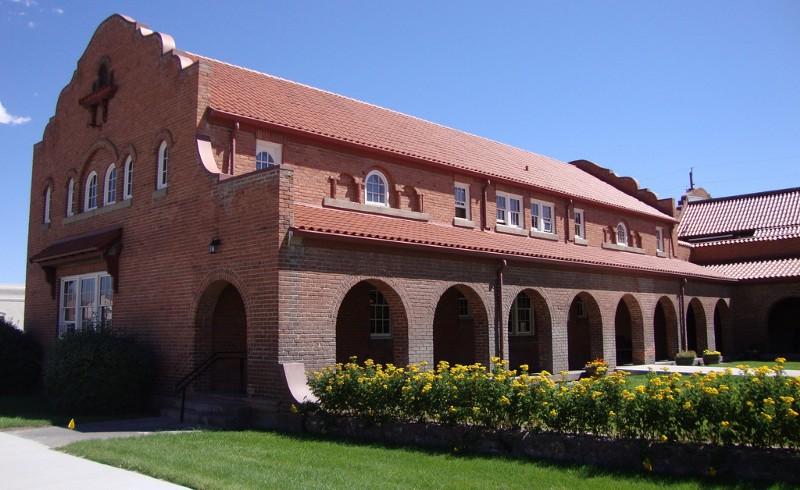Municipal courts in Colorado are a mess, and they’re not alone
North of the New Mexico border sits Alamosa Municipal Court. An unassuming brick building with a terra cotta roof, the local court looks like a sleepy place you might duck into to pay a traffic ticket. Yet the mostly poor Alamosa residents who appear before Judge Daniel Powell are routinely denied counsel, face jail because […]

North of the New Mexico border sits Alamosa Municipal Court. An unassuming brick building with a terra cotta roof, the local court looks like a sleepy place you might duck into to pay a traffic ticket. Yet the mostly poor Alamosa residents who appear before Judge Daniel Powell are routinely denied counsel, face jail because of their poverty, and are forced to plead guilty without the advice of a lawyer, a new ACLU of Colorado report finds.
The report, Justice Derailed, documents the alarmingly frequent constitutional and statutory violations taking place in municipal courts across the state, and is the product of a multi-year investigation. Powell’s courtroom — run “like a fiefdom” — stood out to the report’s authors as one of the worst offenders in the state.
“Judge Powell is operating a two-tiered system in which defendants are punished for their poverty,” said Becca Curry, the report’s co-author in a statement. “Those with means might only appear once in court and pay their debt, while those who lack financial resources face a cruel form of injustice.”
A series of case studies illustrate what the report calls Powell’s “shocking and egregious” behavior, which falls the hardest on indigent defendants — most of whom are in court for minor, non-violent offenses.
Ashley Medina experienced Powell’s harsh rule firsthand when she landed in his court for three petty theft convictions. The theft of items such as laundry detergent and makeup, which took place when she was unemployed and struggling with substance abuse, left her almost $800 in debt to the court. Though she managed to pay $259 over the course of her cases, she didn’t have the means to pay the entire fine, particularly while struggling to treat her addiction with treatment programs that weren’t covered by Medicaid. Medina’s family repeatedly sent letters to Powell explaining her situation.
Powell responded to the family’s pleas by having Medina arrested three times for her inability to pay. In total, Medina spent 36 days in jail over the course of her cases because she couldn’t afford the $1,000 bond set by Powell. Her incarceration, the report notes, cost the city $2,287.
While stories like Medina’s may sound like egregious outliers, defendants in many municipal and misdemeanor courts across the country face similar situations largely because of their economic status. These courts — of which there are thousands in the U.S. — handle millions of cases each year, with little regulation or oversight. The most prominent example in recent years came out of St. Louis County, Missouri, after the fatal shooting of Michael Brown by a police officer in 2014.
Brown’s death cast a spotlight on the many inequities of Ferguson, Missouri’s local criminal justice system, including its municipal court. The cash-strapped city, the U.S. Department of Justice found, increased municipal fines as a source of alternate income, “exhort[ing] police and court staff to deliver those revenue increases.” The result was a police and court system that targeted black residents, charging inflated fines and fees for minor crimes. Those who couldn’t pay, as in Powell’s courtroom, were locked up.
In addition to exorbitant fines, defendants in municipal and misdemeanor courtrooms across the U.S. are routinely not assigned or are flatly denied counsel in cases where jail time is a possible outcome. This blatant Sixth Amendment violation often leads to plea bargains, in which prosecutors woo defendants with freedom from jail in exchange for a guilty plea. In 2015, Sen. Chuck Grassley chaired a Senate Judiciary Committee hearing on the Sixth Amendment right to counsel for misdemeanor defendants.
“No Supreme Court decisions in our history have been violated so widely, so frequently, and for so long,” Grassley told the Committee.
Still, as the ACLU of Colorado demonstrates, it keeps happening.
